Share
CUC students on a field lesson as part of the "Integral Ecology" course at the Bračak Energy Center
Students of the Catholic University of Croatia visited the Bračak Energy Center near Zabok on Thursday, March 20, 2025. The visit took place as part of the elective course Integral Ecology, accompanied by Assoc. Prof. Đurica Pardon.
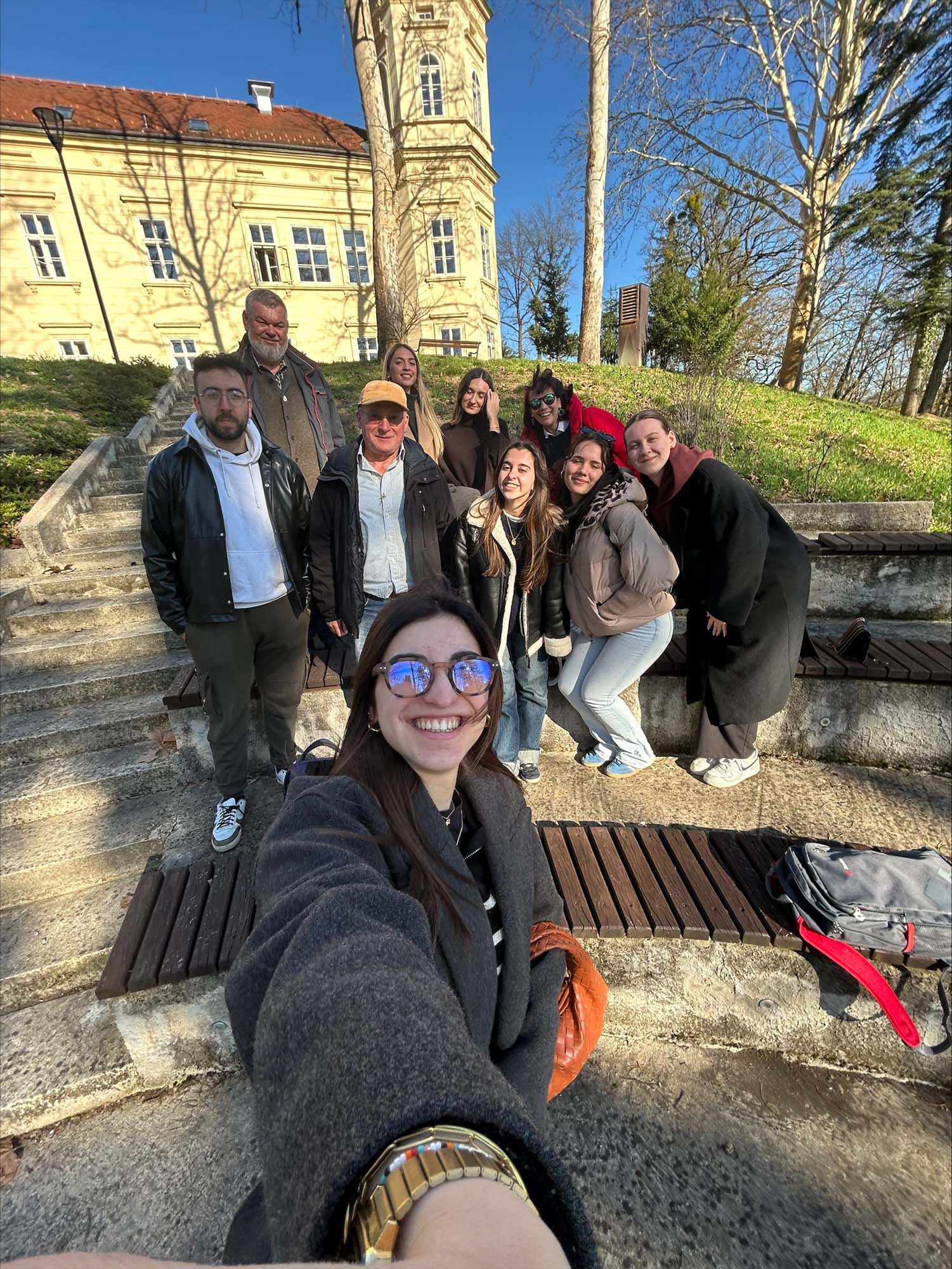
The students' visit began with a tour of the Center itself, led by the project manager, Miljenko Jagarčec. Jagarčec pointed out that Bračak Castle is a unique example of energy-efficient renovation of historic buildings. It has been reconstructed according to low-energy construction standards.
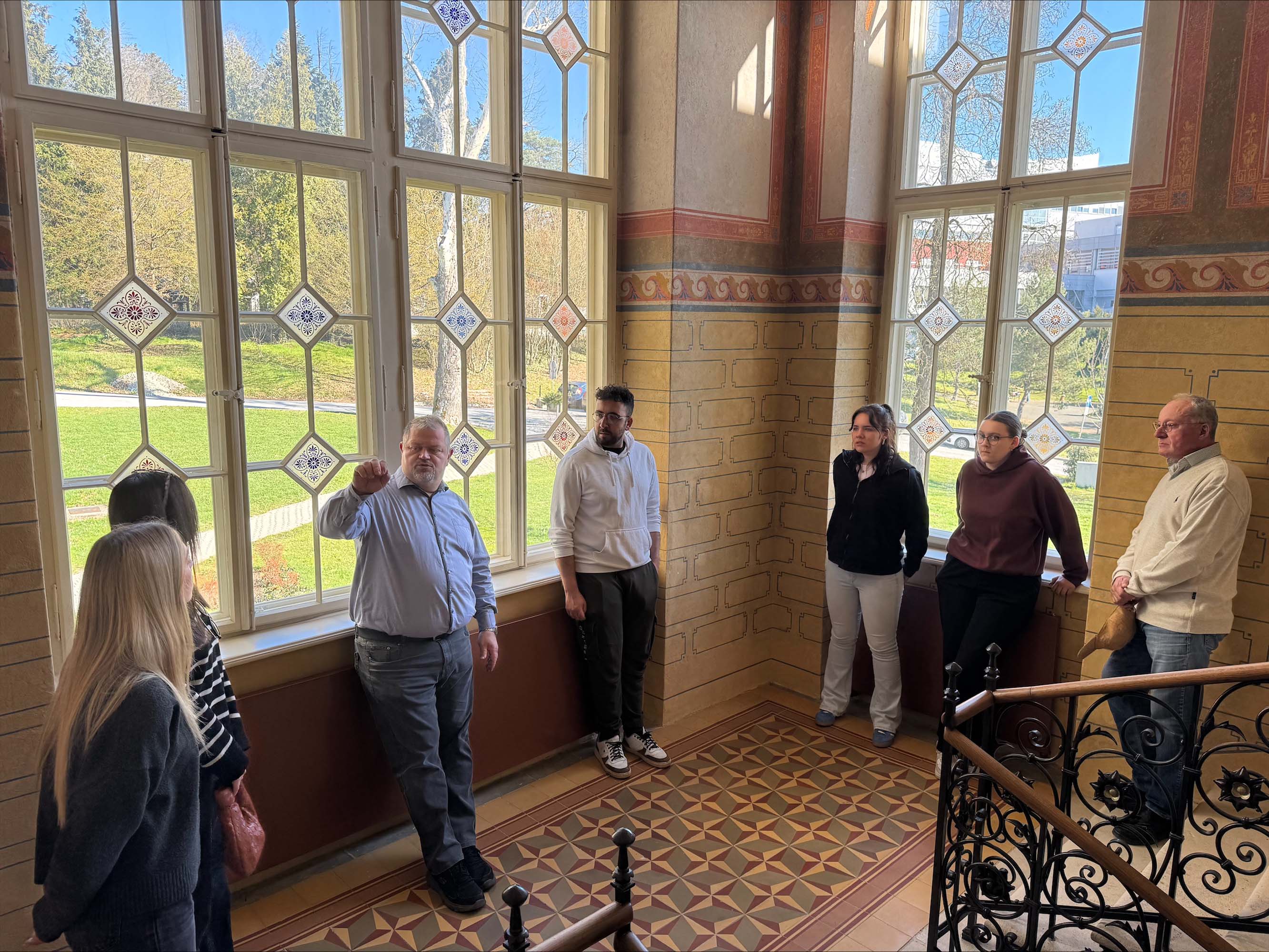
The tour of the Center was followed by a lecture by Prof. Branko Grisogona on key indicators of recent climate change, such as greenhouse gas emissions, melting glaciers, and rising sea levels.
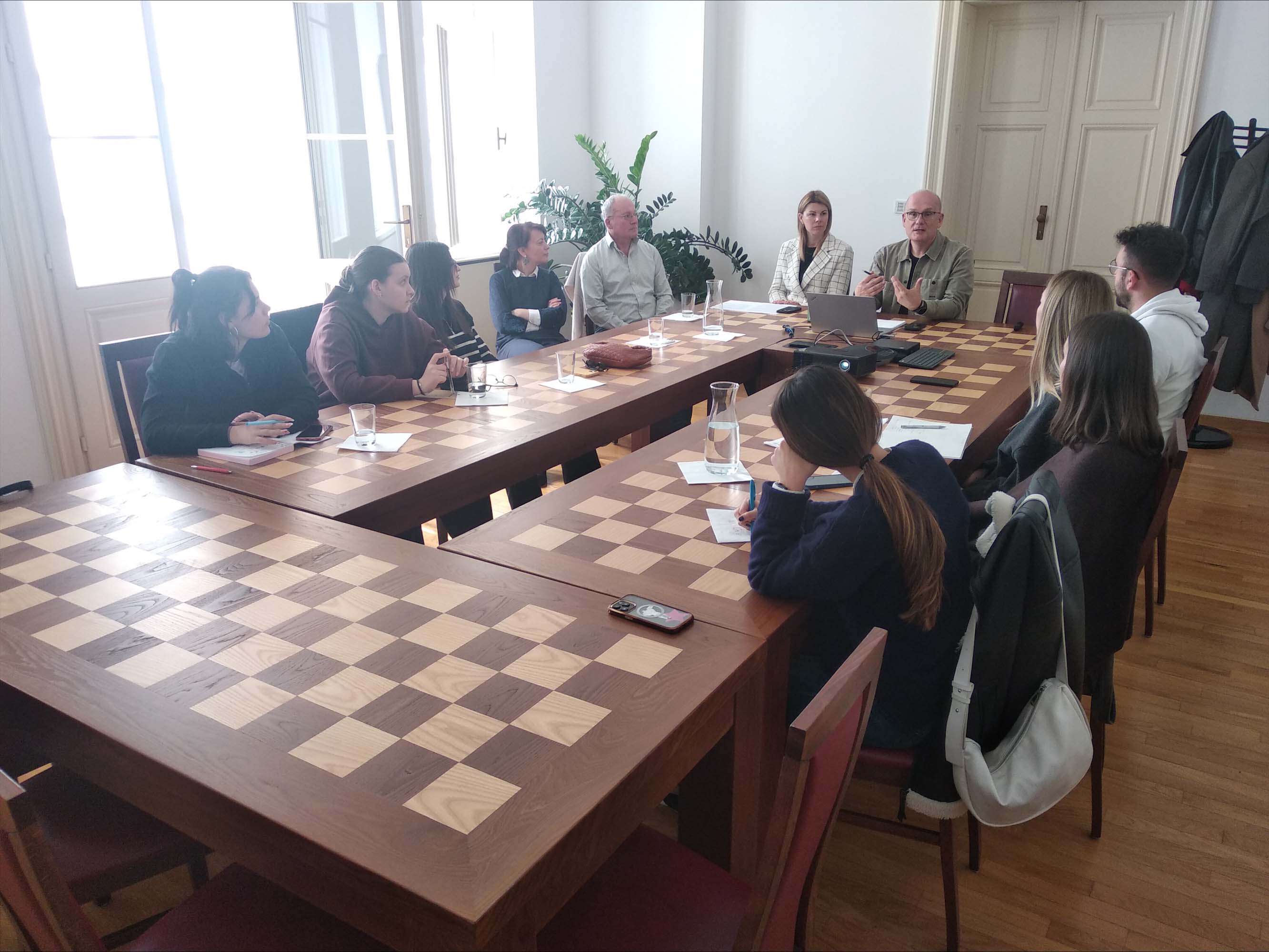
Assoc. Prof. Aleksandra Perčin emphasized the importance of agriculture in the fight against climate change due to its potential benefits for the environment. On the one hand, traditional agricultural practices can be a significant source of greenhouse gas emissions and environmental degradation, while on the other hand, sustainable and innovative agricultural practices can also be solutions for reducing these emissions, restoring soil and preserving biodiversity.
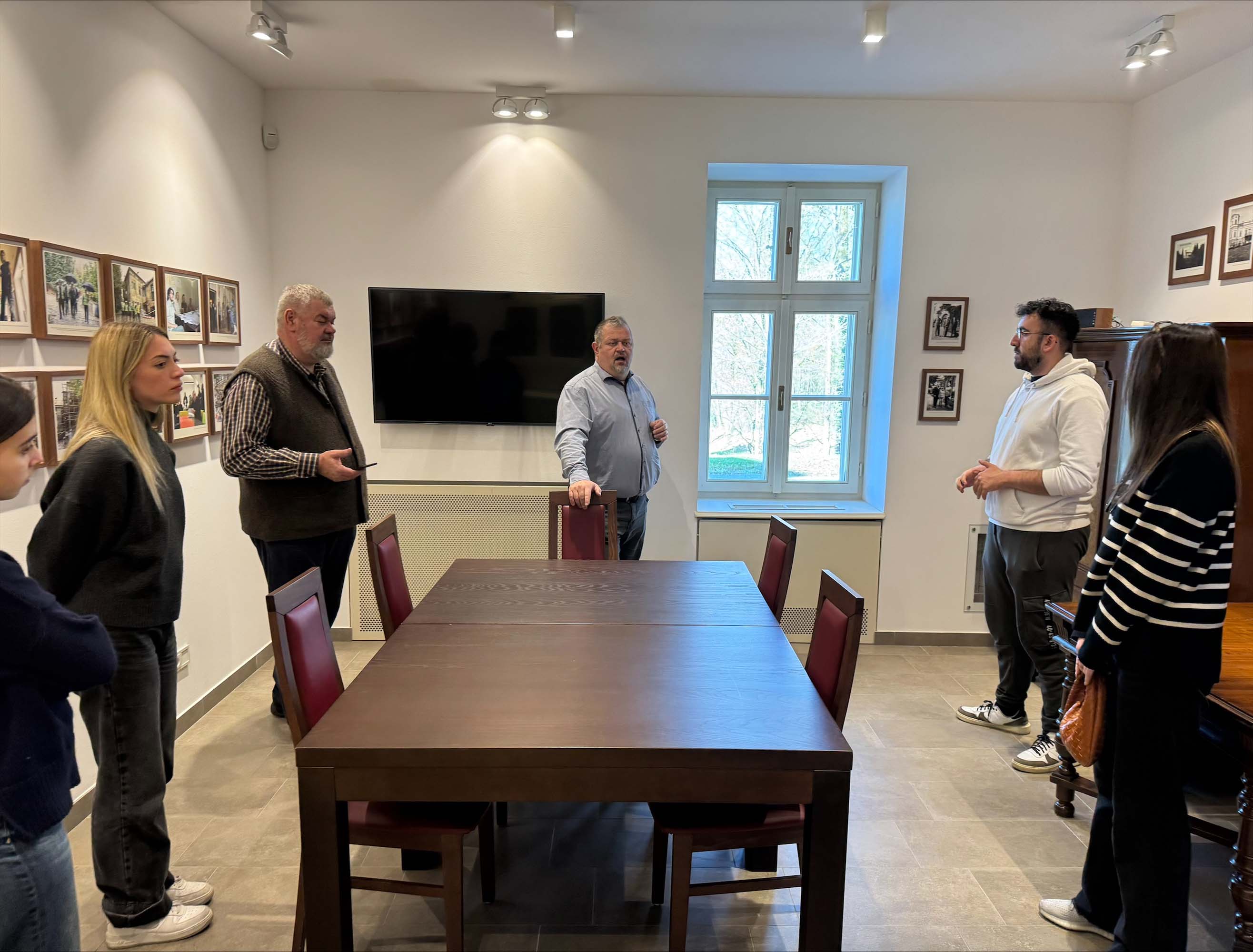
The lecture was also held by the Univ. spec. rel. publ. Ivana Belić. For the last eight years, she has been the head of strategic communications of REGEA. She emphasized that communication is one of the key factors in raising awareness of the importance of ecology. Although there has been more talk about environmental problems in recent years, this level of communication is still not satisfactory. What is necessary for quality communication about ecology are: a good local story, simple and transparent communications, a good connection with journalists and the media.
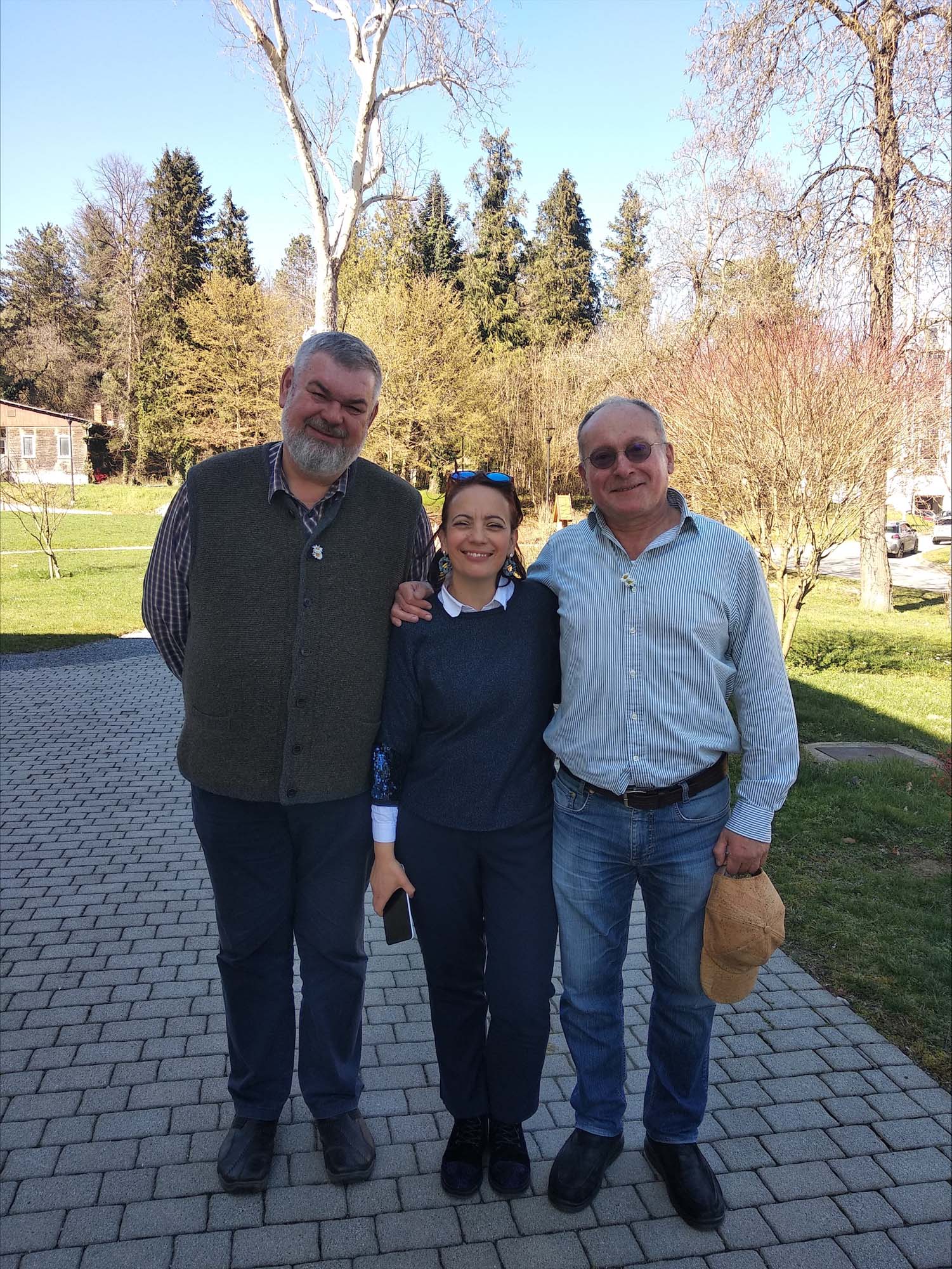
The topic of the last lecture was the development and significance of the Bračak Energy Center and the European Union's policy in the field of climate change. The lecture was given by Julije Domac, PhD, Director of the Regional Energy and Climate Agency of Northwestern Croatia.
The students themselves had the opportunity to offer some solutions to environmental problems. Divided into groups, they designed and presented their own idea for an environmentally sustainable project based on everything they heard in the lectures. The first group presented the so-called "precision" agriculture and how it could be applied, and the second group presented the idea of solar panels and their use. The field trip concluded with a quality discussion of the projects presented and a thank you to the hosts.





